Energy & Environment

Oil spills: fishing: water closure: grants: liability.
Establishes health-based water closures after spills with OEHHA oversight. Imposes 24-hour OEHHA consultation, 48-hour danger assessment, and 7-day testing after closures. Expands grant eligibility to federally recognized tribes for spill response and environmental projects. Maintains absolute liability for spills with narrowed defenses and a ban on taking from closed waters.
Oil spills: fishing: water closure: grants: liability.

Establishes health-based water closures after spills with OEHHA oversight. Imposes 24-hour OEHHA consultation, 48-hour danger assessment, and 7-day testing after closures. Expands grant eligibility to federally recognized tribes for spill response and environmental projects. Maintains absolute liability for spills with narrowed defenses and a ban on taking from closed waters.

Electricity: load shifting.
Requires the Energy Commission to analyze the cost-effectiveness of load-flexibility programs. Requires IEPR to estimate retail supplier load-shifting potential, excluding emergency programs. Requires publication of each retail supplier's load-shifting achievements starting in 2028. Maintains a non-binding framework and preserves CCAs and LPOUs' authority.
Electricity: load shifting.

Requires the Energy Commission to analyze the cost-effectiveness of load-flexibility programs. Requires IEPR to estimate retail supplier load-shifting potential, excluding emergency programs. Requires publication of each retail supplier's load-shifting achievements starting in 2028. Maintains a non-binding framework and preserves CCAs and LPOUs' authority.

Energy: transportation fuels: supply: reportable pipelines.
Requires identification of reportable pipelines delivering crude oil by December 31, 2026. Mandates monthly reporting of 24-hour volumes, daily deliveries, hours, and capacity. Commences March 30, 2027 as the start of reporting by reportable pipelines. Extends penalties for noncompliance, allows court orders, and preserves confidentiality.
Energy: transportation fuels: supply: reportable pipelines.

Requires identification of reportable pipelines delivering crude oil by December 31, 2026. Mandates monthly reporting of 24-hour volumes, daily deliveries, hours, and capacity. Commences March 30, 2027 as the start of reporting by reportable pipelines. Extends penalties for noncompliance, allows court orders, and preserves confidentiality.

Environmental health: product safety: perfluoroalkyl and polyfluoroalkyl substances.
Prohibits sale of products with intentionally added PFAS starting 2028. Prohibits PFAS in cookware starting 2030. Enforces the restrictions through testing, penalties, and injunctions. Requires compliance certificates on request and may exempt firms from registration and fees.
Environmental health: product safety: perfluoroalkyl and polyfluoroalkyl substances.

Prohibits sale of products with intentionally added PFAS starting 2028. Prohibits PFAS in cookware starting 2030. Enforces the restrictions through testing, penalties, and injunctions. Requires compliance certificates on request and may exempt firms from registration and fees.

State Fire Marshal: home hardening certification program.
Establishes a home hardening certification to reduce wildfire risk. Expands WUI training and product lists with emergency power backups. Forms a monthly advisory committee to develop the program by Jan 1, 2027 and align with CBC Part 7. Funding via legislative appropriation from a revolving fund; some provisions are contingent.
State Fire Marshal: home hardening certification program.

Establishes a home hardening certification to reduce wildfire risk. Expands WUI training and product lists with emergency power backups. Forms a monthly advisory committee to develop the program by Jan 1, 2027 and align with CBC Part 7. Funding via legislative appropriation from a revolving fund; some provisions are contingent.

Energy.
Establishes the California Transmission Accelerator program with a revolving fund. Creates the Continuation Account to reserve funds for wildfire claims. Authorizes two new tax credits for eligible transmission projects. Expands wildfire safety oversight with nine-month plan reviews, audits, and penalties.
Energy.

Establishes the California Transmission Accelerator program with a revolving fund. Creates the Continuation Account to reserve funds for wildfire claims. Authorizes two new tax credits for eligible transmission projects. Expands wildfire safety oversight with nine-month plan reviews, audits, and penalties.

Climate change: market-based compliance mechanism: extension.
Extends the California Cap-and-Invest program through 2046 to continue emissions reductions. Creates the California Climate Mitigation Fund to fund direct household rebates. Sets offset credit limits and creates offset task force and advisory committee. Mandates affordability by shifting support from gas corporations to electric utilities.
Climate change: market-based compliance mechanism: extension.

Extends the California Cap-and-Invest program through 2046 to continue emissions reductions. Creates the California Climate Mitigation Fund to fund direct household rebates. Sets offset credit limits and creates offset task force and advisory committee. Mandates affordability by shifting support from gas corporations to electric utilities.

Independent System Operator: independent regional organization.
Repeals ISO regional transformation and allows voluntary markets. Requires governance reforms and state policy respect before tariff changes. Requires open meetings, public participation, data access, and funding for consumer advocates. Delays tariff changes until 2028 and requires a 2026 job impact study.
Independent System Operator: independent regional organization.

Repeals ISO regional transformation and allows voluntary markets. Requires governance reforms and state policy respect before tariff changes. Requires open meetings, public participation, data access, and funding for consumer advocates. Delays tariff changes until 2028 and requires a 2026 job impact study.
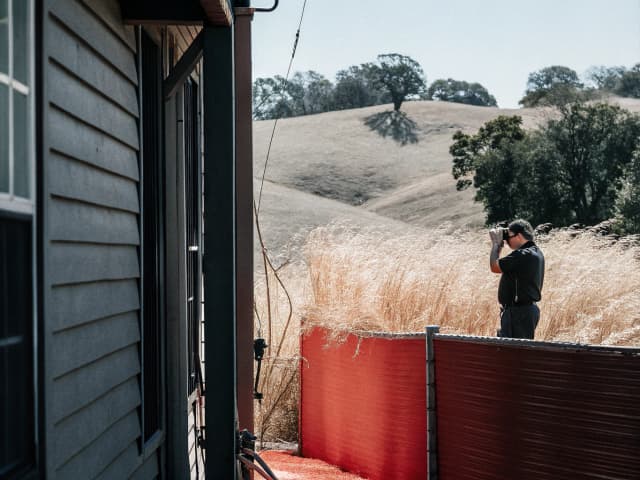
Wildfires: fire hazard severity zones: post-wildfire safety areas.
Expands fire hazard zones to include wildfire perimeters and urban risk. Creates post-wildfire safety areas and links to state fire standards. Requires local posting of maps and notices within 10 business days. Requires safety element updates to address post-wildfire areas.
Wildfires: fire hazard severity zones: post-wildfire safety areas.

Expands fire hazard zones to include wildfire perimeters and urban risk. Creates post-wildfire safety areas and links to state fire standards. Requires local posting of maps and notices within 10 business days. Requires safety element updates to address post-wildfire areas.

Public resources: transportation of carbon dioxide.
Mandates CO2 pipeline safety regs by July 1, 2026, aligned with federal draft standards. Requires annual inventory and maps of CO2 zones with redacted data shared with local responders. Requires CFD-based risk assessment before locating CO2 pipelines near sensitive receptors. Authorizes shutdown for violations or danger and keeps ruptures nonoperational during investigation.
Public resources: transportation of carbon dioxide.

Mandates CO2 pipeline safety regs by July 1, 2026, aligned with federal draft standards. Requires annual inventory and maps of CO2 zones with redacted data shared with local responders. Requires CFD-based risk assessment before locating CO2 pipelines near sensitive receptors. Authorizes shutdown for violations or danger and keeps ruptures nonoperational during investigation.

Energy: Voluntary Offshore Wind and Coastal Resources Protection Program: community capacity funding activities and grants.
Expands the program to include capacity funding for local communities and tribes. Authorizes capacity funding and grants for monitoring, infrastructure, and workforce. Requires donor disclosures with 90-day reporting by offshore wind entities and public summaries. Requires annual and periodic reports to the Legislature on fund receipts, allocations, and impact.
Energy: Voluntary Offshore Wind and Coastal Resources Protection Program: community capacity funding activities and grants.

Expands the program to include capacity funding for local communities and tribes. Authorizes capacity funding and grants for monitoring, infrastructure, and workforce. Requires donor disclosures with 90-day reporting by offshore wind entities and public summaries. Requires annual and periodic reports to the Legislature on fund receipts, allocations, and impact.

Oil spill prevention: gasoline specifications: suspension: California Environmental Quality Act: exemptions: County of Kern: transportation fuels assessment: coastal resources.
Requires public posting of financial responsibility applications with volumes and dollar amounts. Imposes spike hydrostatic testing for idle pipelines six inches or larger before restart. Authorizes suspension of gasoline vapor pressure rules during price spikes. Establishes Kern County CEQA framework deeming local zoning EIR sufficient.
Oil spill prevention: gasoline specifications: suspension: California Environmental Quality Act: exemptions: County of Kern: transportation fuels assessment: coastal resources.

Requires public posting of financial responsibility applications with volumes and dollar amounts. Imposes spike hydrostatic testing for idle pipelines six inches or larger before restart. Authorizes suspension of gasoline vapor pressure rules during price spikes. Establishes Kern County CEQA framework deeming local zoning EIR sufficient.

California Safe Homes grant program.
Establishes the California Safe Homes grant program to reduce wildfire losses. Creates Sustainable Insurance Account within the Insurance Fund for program funding. Prioritizes roof replacement, 5-foot zones, and community mitigation by jurisdictions. Sets eligibility for high-risk ZIPs with admitted insurers or FAIR Plan; enables rulemaking.
California Safe Homes grant program.

Establishes the California Safe Homes grant program to reduce wildfire losses. Creates Sustainable Insurance Account within the Insurance Fund for program funding. Prioritizes roof replacement, 5-foot zones, and community mitigation by jurisdictions. Sets eligibility for high-risk ZIPs with admitted insurers or FAIR Plan; enables rulemaking.
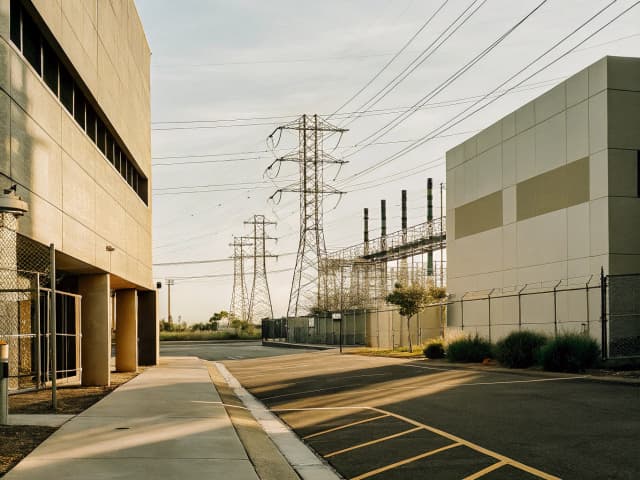
Electrical corporations: data centers: report.
Authorizes the PUC to assess data-center related costs and cross-subsidy impacts. Includes analysis of procurement costs, new transmission and distribution assets, and stranded assets. If completed, publish publicly and transmit to Legislature by January 1, 2027. Creates a temporary framework repealed January 1, 2031.
Electrical corporations: data centers: report.

Authorizes the PUC to assess data-center related costs and cross-subsidy impacts. Includes analysis of procurement costs, new transmission and distribution assets, and stranded assets. If completed, publish publicly and transmit to Legislature by January 1, 2027. Creates a temporary framework repealed January 1, 2031.

Wildfire safety: fire protection building standards: defensible space requirements: The California Wildfire Mitigation Strategic Planning Act.
Establishes a wildfire risk planning framework to guide statewide mitigation. Requires a baseline wildfire forecast by April 1, 2027, and every three years. Advances ember resistant zone timelines for existing structures in high fire zones. Creates local grants to fund inspections and early prevention work, contingent on funding.
Wildfire safety: fire protection building standards: defensible space requirements: The California Wildfire Mitigation Strategic Planning Act.

Establishes a wildfire risk planning framework to guide statewide mitigation. Requires a baseline wildfire forecast by April 1, 2027, and every three years. Advances ember resistant zone timelines for existing structures in high fire zones. Creates local grants to fund inspections and early prevention work, contingent on funding.

Energy: Fusion Research and Development Innovation Initiative.
Establishes a fusion initiative within the Energy Commission to accelerate development. Operates only upon appropriation and sunsets in 2028. Provides financial incentives for fusion R&D, testing facilities, and deployment. Requires JLBC notice and 60-day approval for noncompetitive awards.
Energy: Fusion Research and Development Innovation Initiative.

Establishes a fusion initiative within the Energy Commission to accelerate development. Operates only upon appropriation and sunsets in 2028. Provides financial incentives for fusion R&D, testing facilities, and deployment. Requires JLBC notice and 60-day approval for noncompetitive awards.

Hazardous materials: metal shredding facilities.
Establishes a DTSC permit regime to regulate metal shredding facilities. Requires action within three years after a complete permit application, including public meetings. Imposes annual fees and creates a dedicated Metal Shredding Facility Subaccount.
Hazardous materials: metal shredding facilities.

Establishes a DTSC permit regime to regulate metal shredding facilities. Requires action within three years after a complete permit application, including public meetings. Imposes annual fees and creates a dedicated Metal Shredding Facility Subaccount.

Environmental justice: Department of Justice: Bureau of Environmental Justice: community air monitoring.
Establishes a Bureau of Environmental Justice in the DOJ to oversee enforcement and monitoring. Mandates a state board-led framework deploying community and fence-line monitoring systems. Requires priority-location monitoring deployment and plan updates, subject to available funding. Requires districts to share data with the board and publish on the board website.
Environmental justice: Department of Justice: Bureau of Environmental Justice: community air monitoring.

Establishes a Bureau of Environmental Justice in the DOJ to oversee enforcement and monitoring. Mandates a state board-led framework deploying community and fence-line monitoring systems. Requires priority-location monitoring deployment and plan updates, subject to available funding. Requires districts to share data with the board and publish on the board website.

Wildfire Safety and Risk Mitigation Program.
Establishes a wildfire model funding program and university grants, contingent on appropriation. Administers grants competitively with standards, metrics, and alignment to insurance laws and public info. Prioritizes disadvantaged communities, government protection, education, and public risk data. Operative upon appropriation; publishes plan and milestones online; preserves rate authority.
Wildfire Safety and Risk Mitigation Program.

Establishes a wildfire model funding program and university grants, contingent on appropriation. Administers grants competitively with standards, metrics, and alignment to insurance laws and public info. Prioritizes disadvantaged communities, government protection, education, and public risk data. Operative upon appropriation; publishes plan and milestones online; preserves rate authority.

Greenhouse gases: Greenhouse Gas Reduction Fund: studies.
Directs revenues from the Greenhouse Gas Reduction Fund to dedicated climate funds. Ends continuous fund appropriations on July 1, 2026. Starts 2026–27 with priority allocations and multiyear spending plans. Requires offsets study by December 31, 2026.
Greenhouse gases: Greenhouse Gas Reduction Fund: studies.

Directs revenues from the Greenhouse Gas Reduction Fund to dedicated climate funds. Ends continuous fund appropriations on July 1, 2026. Starts 2026–27 with priority allocations and multiyear spending plans. Requires offsets study by December 31, 2026.
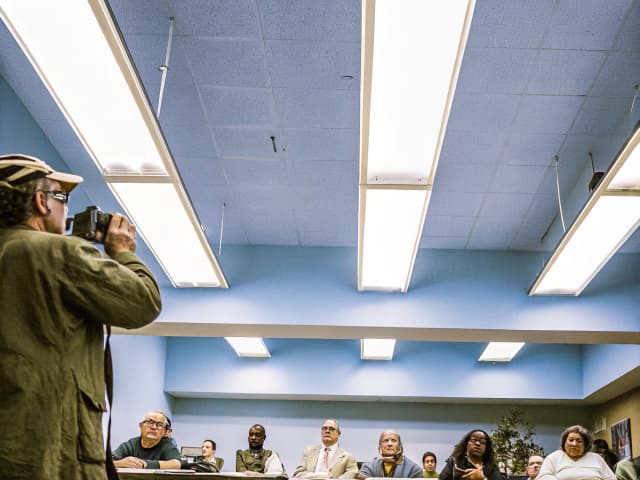
Public utilities: ratesetting proceedings: local publicly owned electric utilities: California Renewables Portfolio Standard Program.
Establishes public input before rate decisions raising over 5% for utilities with revenue over $1B. Provide at least 30 minutes of public comment before voting on large-rate decisions. Imposes targets through 2030, including 60% by 2030, and excludes voluntary green pricing credits. Enforces via the Energy Commission with penalties to the Air Pollution Control Fund.
Public utilities: ratesetting proceedings: local publicly owned electric utilities: California Renewables Portfolio Standard Program.

Establishes public input before rate decisions raising over 5% for utilities with revenue over $1B. Provide at least 30 minutes of public comment before voting on large-rate decisions. Imposes targets through 2030, including 60% by 2030, and excludes voluntary green pricing credits. Enforces via the Energy Commission with penalties to the Air Pollution Control Fund.
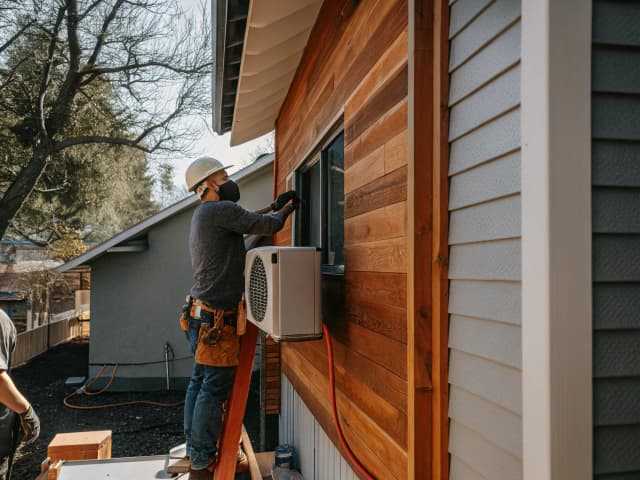
Energy: Equitable Building Decarbonization Program: Low-Income Oversight Board: membership.
Establishes the Equitable Building Decarbonization Program coordinating install and incentives. Creates a two-year window to reallocate unspent EBDP funds. Requires cross-notification that EBDP applicants may access PUC incentives. Replaces Low-Income Advisory Board with Low-Income Oversight Board and adds Energy Commission seat.
Energy: Equitable Building Decarbonization Program: Low-Income Oversight Board: membership.

Establishes the Equitable Building Decarbonization Program coordinating install and incentives. Creates a two-year window to reallocate unspent EBDP funds. Requires cross-notification that EBDP applicants may access PUC incentives. Replaces Low-Income Advisory Board with Low-Income Oversight Board and adds Energy Commission seat.
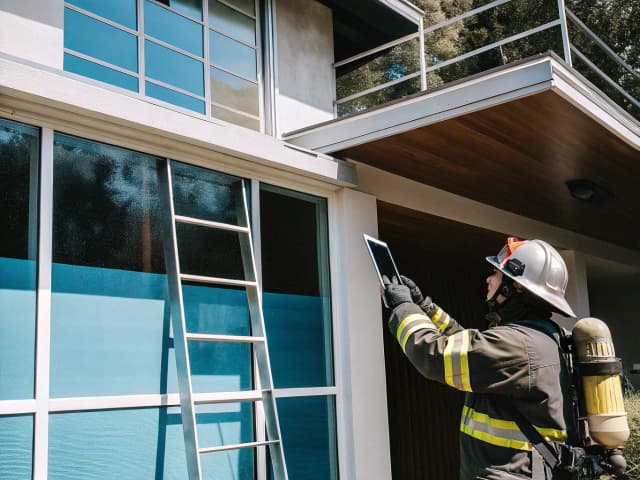
Community Hardening Commission: wildfire mitigation program.
Establishes a Community Hardening Commission to set wildfire standards and data sharing. Requires quarterly meetings from 2026 and standards by 2027; funding via annual budgets. Provides data sharing with opt-out and confidential agreements.
Community Hardening Commission: wildfire mitigation program.

Establishes a Community Hardening Commission to set wildfire standards and data sharing. Requires quarterly meetings from 2026 and standards by 2027; funding via annual budgets. Provides data sharing with opt-out and confidential agreements.

Methane emissions: petroleum and natural gas producing low methane emissions.
Establishes a state-wide mandate to prioritize methane reductions using MMRV across agencies. Authorizes ARB, PUC, and other agencies to apply MMRV to existing programs. Encourages certified low-methane natural gas procurement where feasible and cost-effective. Contains no new penalties and relies on existing regulatory enforcement.
Methane emissions: petroleum and natural gas producing low methane emissions.

Establishes a state-wide mandate to prioritize methane reductions using MMRV across agencies. Authorizes ARB, PUC, and other agencies to apply MMRV to existing programs. Encourages certified low-methane natural gas procurement where feasible and cost-effective. Contains no new penalties and relies on existing regulatory enforcement.

Energy: equitable clean energy supply chains and industrial policy in California.
Establishes an interagency framework for equitable clean energy supply chains. Designates a Senior Counselor by March 1, 2027. Requires MOUs among six agencies to guide planning, procurement, and jobs. Creates the Equitable Clean Energy Fund in the treasury, spendable by appropriation.
Energy: equitable clean energy supply chains and industrial policy in California.

Establishes an interagency framework for equitable clean energy supply chains. Designates a Senior Counselor by March 1, 2027. Requires MOUs among six agencies to guide planning, procurement, and jobs. Creates the Equitable Clean Energy Fund in the treasury, spendable by appropriation.